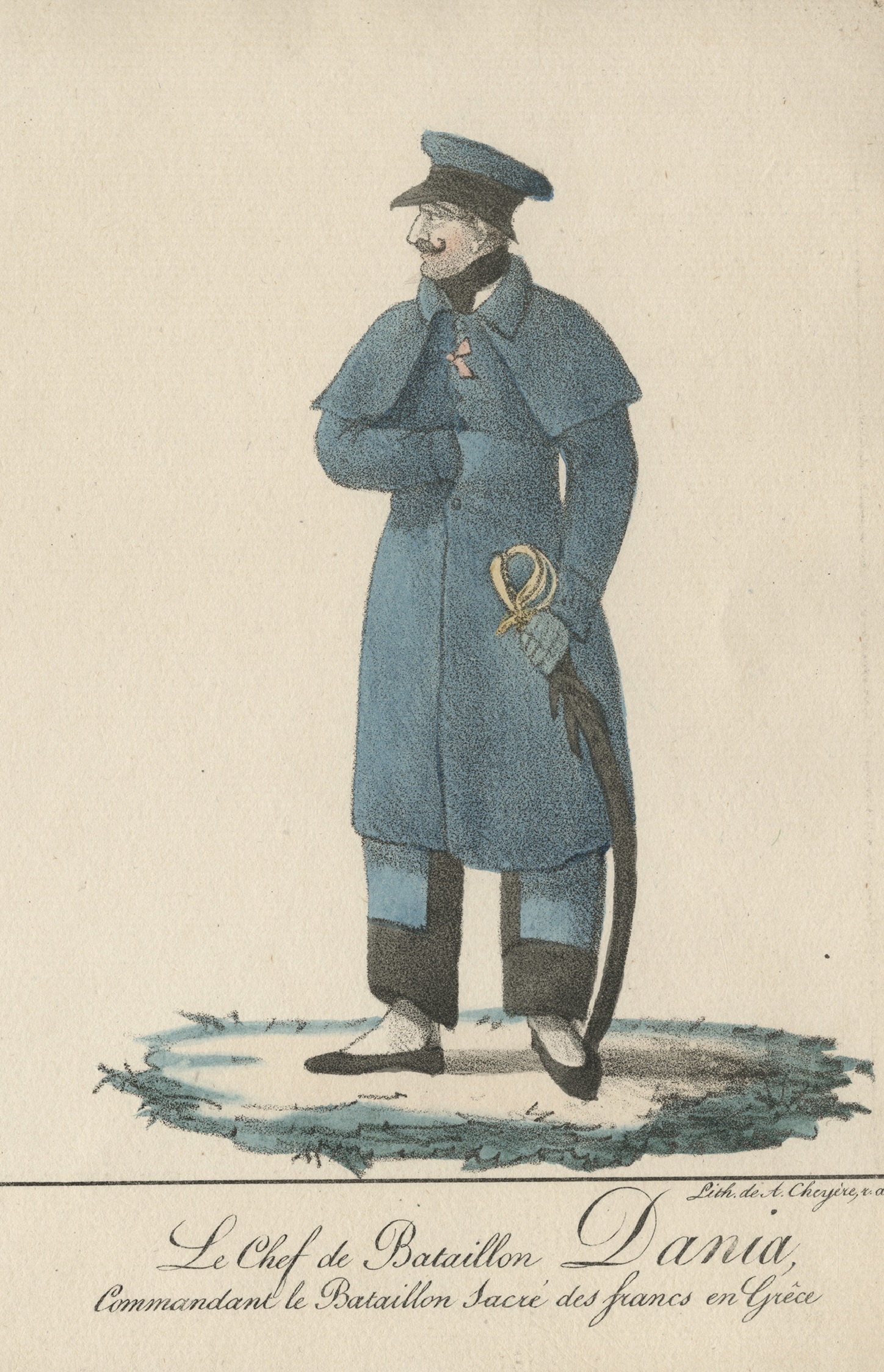Andrea Dania ( 1775-1822 )

Andrea Dania was an Italian soldier.
He was born on April 7, 1775, in Ovada, a town in north-western Italy which at the time belonged to the Republic of Genoa.
At the age of 18, he enlisted in the militia of the Republic of Genoa and then in the National Guard of the Republic of Liguria, which in 1797 succeeded the former. He took part in the Napoleonic Wars on the side of the French and distinguished himself in Napoleon’s Iberian campaign, particularly in the battles of Talavera, Madrid, Salamanca and Vitoria. For his meritorious action, in 1813 he received the Legion of Honour by the French Republic.
Dania was amongst the 1,000 men who accompanied Napoleon when he landed in Cannes, on March 1, 1815, after having escaped from the Island of Elba, to attempt to regain power. Dania remained loyal to Napoleon until the final defeat of the latter in the Battle of Waterloo, in which Dania fought as a French Army officer. He was captured and returned to Genoa, where he resumed his military career, this time joining the ranks of the army of the Kingdom of Piedmont, to which the former Republic of Genoa belonged.
Almost as soon as the Greek War of Independence broke out, Dania decided to join the Greek cause. In June 1821 in Trieste, he boarded a ship bound for Hydra. His fellow-passengers included Dimitrios Ypsilantis, Panagiotis Anagnostopoulos and the prominent Philhellenes Joseph Baleste and Pietro Tarella. One month later, Dania took part in the siege of Tripoli and five months later in the first, failed attempt to capture Nafplio.
When the Battalion of Philhellenes was formed, in May 1822, Dania took command as colonel. His first mission was the operation to end the siege of Souli by Ottoman troops. The Greek forces, along with the Battalion of Philhellenes, however, wasted valuable time in advancing towards Epirus, giving the Ottomans the opportunity to reinforce their own positions. Nevertheless, in the first battle they fought against the Ottomans, at Kompoti, near Arta, on June 10, 1822, Greeks and Philhellenes prevailed. The victors immediately advanced to Peta, where they camped out for some 25 days.
Greeks and Philhellenes disagreed about the appropriate approach to engaging with their opponent. The former preferred their familiar method of fighting behind rocks; the latter wanted to fight in ranks, according to European practice: “Our chests are our bastions,” Dania is purported to have said to counter the arguments of the Greeks. On July 4, 1822, these different approaches were put to the test on the battlefield at Peta. Thanks to their numerical superiority, the Ottomans decimated the Battalion of Philhellenes, which lost 68 out of 93 men. The destruction could not be averted by Dania’s bravery, who, on horseback, constantly encouraged his comrades. Eventually surrounded by the Ottomans, he was beheaded.




